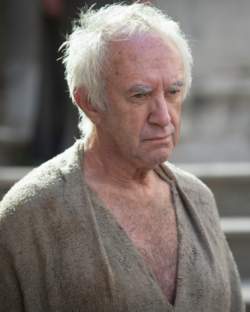by Amasius
Christianity has no racial component. That wasn’t a problem a century ago, but it is now with our globalized multicultural world. With Christianity taking account only of faith and ignoring blood, it cannot help us in the situation we face. Those who profess Christianity and also have racial awareness possess the latter in spite of the former, not because of it. Christianity certainly isn’t helping now.
 We need to start with the foundation that race is everything: everything else grows out of it. We need a new religion that is tailored to this reality. It’s what William Luther Pierce and Alfred Rosenberg wrote about and they certainly weren’t Jews. It’s what I believe and neither am I.
We need to start with the foundation that race is everything: everything else grows out of it. We need a new religion that is tailored to this reality. It’s what William Luther Pierce and Alfred Rosenberg wrote about and they certainly weren’t Jews. It’s what I believe and neither am I.
4 replies on “The foundation”
The racial-physical fact acquires historic value only when removed from its naturalistic inertia and inscribed in a cultural voluntaristic project.
Yes: Pierce spoke a lot about inertia at the end of Who We Are and in his second novel (e.g., here). I have not read you book but what do you think will produce the change? Michael O’Meara, reviewing Covington’s novels, wrote. “For reasons almost providential, whites in Coeur d’Alene Idaho finally rebel, when they spontaneously resist federal agents attempting to carry off the children of a politically incorrect but well-regarded family.”
I believe that the miracle might happen sometime within the unfoldment of the convergence of catastrophes: the coming financial accident, the grim effects of energy devolution later in this century and the political crisis resulting from it.
I wish I knew! My book is much more modest than that.
There may be catastrophes, and the system may manage to absorb them. I can very well imagine a global Brazil, or a ‘Chimerica’ coming to rule this planet.
In any case, don’t you think apocalyptic visions are another way of retaining that semitic ‘forma mentis’ which needs to be overcome?
It is a view also similar to the one maintained today among modern supporters of the ‘traditionalist theory of cycles’ (René Guénon, Julius Evola) who consider that our age corresponds to the end of a cycle: the Hindu Kali Yuga or the ‘Age of the Wolf,’ according to Nordic mythology. If that were to be the case, human freedom would be consequently restricted, with all the risks logically inherent in such an analysis: fatalism and the strategy of making things worse in order to achieve one’s ends.
I affirm man’s historical freedom. In the vision proposed by Nietzsche, man carries the whole responsibility of historical becoming. History is his work. It is equivalent to saying that he carries the whole responsibility of himself, that he is truly and fully free: faber suae fortunae. This freedom is an authentic freedom, not conditioned by the grace of God or the constraints of an economic, material situation. It is also a true freedom—consisting in the possibility of choosing between opposed options: options that exist at every moment of history. Since man is not only an historical, but also a social animal, this choice presents itself in the form of epochal alternatives: the decisions taken by the groups of men involved will have political effect in world history.
What, then, is the alternative offered to the men of our age? Nietzsche said that the choice was between the last man—the man of the end of history—and the leap towards the superman: the regeneration of history. Ultimately, the outcome will depend on us—on European men and women—on the choice we make between these options.
In that sense, with the death of the last emperor in 1945, the strategy designed by Rockwell, Pierce, Mosley or CEDADE, among others – creating an international European vanguard – was the correct one.There are no Pierces or Degrelles any longer, I know. Maybe our function, during the interregnum, is to be missionaries of the new gospel, and be patient…
Have you taken the 45-minute course on peak oil by Chris Martenson, or at least seen the graph that matches overpopulation with the exploitation of petroleum? If their data is right Apocalypse is indeed coming this century.
I have read the biographies of Curt Paul Janz, of Werner Ross and of Stefan Zweig about Nietzsche. If we take also into account Miller’s The Untouched Key we may conclude that the poor man didn’t chose his madness. Apparently he was a “martyr of the spirit” as Janz put it I believe in the third book of his monumental work about him. There’s no total freedom, only partial. But that’s an old philosophical debate that would very much like to avoid… ha.
I really have to read your book.